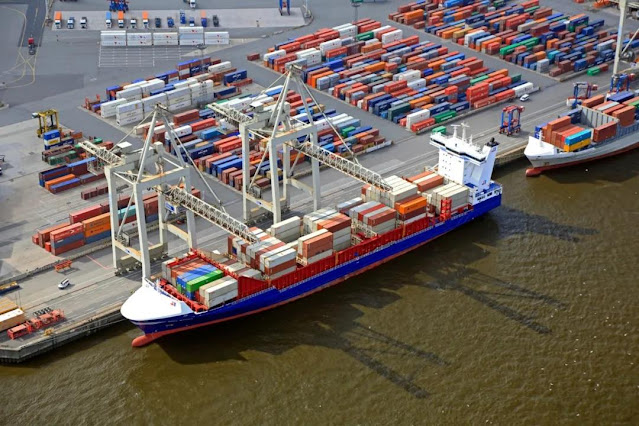With the backlog of cargo stranded, the container shipping market is facing collapse
"Sky-high" freight rates and the huge profits of the shipping companies in the second quarter have been slammed by cargo owners. A new report claims that the carrier alliance is "suppressing" freight.
According to market assessments by MDS Transmodal and the Global Shippers Forum (GSF), container traffic in the second quarter increased by 4% and a year-on-year increase of 22%, close to the level of growth before the pandemic.
MDS stated that carriers are operating "actually at full capacity", with the utilization rate of most routes reaching 90%, noting that "in certain key markets" the share of capacity based on ship sharing agreements exceeds 40%.
Mike Garratt, Chairman of MDS Transmodal, said: "This high level of integration is conducive to enabling routes to adjust capacity allocation according to changing needs, but combined with the resulting very high utilization rate, the freight rate remains at an unprecedented level in history. This means that some potential shipping costs may be suppressed."
In fact, GSF director James Hookham said that shippers are facing a "collapse" in the container shipping market-"the soaring freight rates, space auctions, and garbage service performance". He added: “All industry indicators show that a large number of goods are not being transported-boxes are stranded, stacked on the dock, or stacked in the export warehouse waiting for space.”
The report also said that in the case of soaring carrier profits, the operating cost of each container has "almost no change" in the past 18 months, and the shipping company "income per container is more than twice as high as when the pandemic began." However, although the MDS/GSF review was not specifically mentioned, the liner lobby group "Shipping Australia" claimed that the cost of operating the ship had "surpassed". The company said: “Since the end of May 2020, chartering costs have soared to 773%, and ship fuel costs have increased from US$155.50 per ton in April 2020 to US$435.50 per ton, a nearly three-fold increase.”
"Don't be deceived by propaganda; the cost of operating ships is high and increasing." The lobby group said that the Covid-19 pandemic has caused demand tightening, and compared with the substantial increase in freight volume, the supply of transportation capacity is slowly adapting. "If demand surges and supply adapts slowly, prices will inevitably rise. This is basic economics." Australian shipping company said.
At the same time, it pointed out that shipping companies have increased the supply of ships, and the previously idle fleet has been put back into operation. “Non-professional multi-purpose ships and even cape-type bulk carriers have been chartered to transport containers.” It also added that “Ocean Shipping has invested in a large number of new ships and new container orders”.
The organization also blamed container ports for the industry's problems to a large extent, claiming that the extra supply was wasted by terminal congestion and poor port performance. The organization stated: "As ships are forced to waste time in congested queues at ports, the equivalent of the world's largest fleet is actually being wasted.”Shipping Australia urges shippers to direct their lobbying efforts to where they are really needed. -Port congestion and poor performance.
Melwyn Noronha, Chief Executive Officer of the Australian Shipping Industry, added: “Misleading statements made by certain people in the shipper group portray a false picture of the shipping industry. Despite the restrictions imposed by the government, the shipping industry’s performance has been consistent throughout the pandemic. Very flexible and very cost-effective."
Source: sofreight.com






评论
发表评论